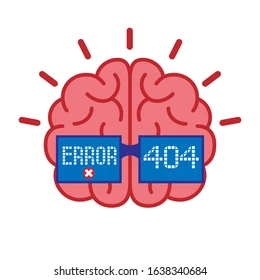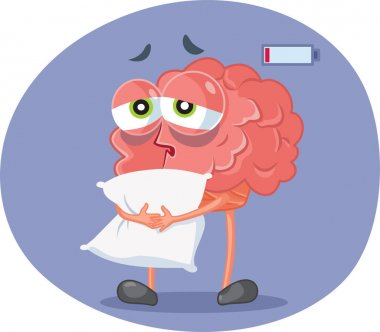MENTALLY EXHAUSTED BUT DON'T KNOW THE REASON WHY?
Ahhh the feeling - you've been cramming for a test or presentation all day, when suddenly you can't remember the simplest of things that happened during the day - like that one topic you prepared so well but can't remember now or just as simple as not remembering what you had for breakfast that morning. Why do we get so unraveled after hours of hard mental labour?
We get so unraveled after hours of hard mental labour just because of a toxic buildup of glutamate, which is the brain's most abundant chemical signal. Of course, this comes up with a controversy too. It was thought by some researchers that doing difficult mental tasks used up more energy than easy tasks, exhausting the brain, just like how exercise does to the muscles. Some even suggested that drinking a sugary milkshake would make you more mentally sharper than an artificially sweetened one.
This research on the toxic buildup of glutamate is one of the most recent ones where researchers had looked at whether levels of glutamate were related to behavior that so often manifests when we're mentally exhausted - like acting impulsively, that is a result of seeking easy and immediate gratification. Glutamate typically excites neurons, playing key roles in memory and learning, but too much of it can wreak havoc on brain function, causing problems ranging from cell death to seizures. Anything too much turns the other way around, isn't it?
A non-invasive technique: magnetic resonance spectroscopy was used by the researchers to detect glutamate through a combination of powerful magnets and radiowaves. The brain region that was chosen to be focused on was the lateral prefrontal cortex, which helps us stay focused and plan things. Mental exhaustion makes this region of the brain - the lateral prefrontal cortex less active.
Abnormal glutamate signaling occurs in many brain disorders. There are already drugs that target the neuronal receptors for glutamate which are used to treat depression, symptoms of Alzheimer's disease, etc. Glutamate-based therapies for other disorders such as epilepsy and schizophrenia are also under exploration. An important drawback of this study is that the scanners used aren't powerful enough to distinguish between glutamate and another closely related molecule - glutamine.
Metabolic waste might turn out to be a key contributor to cognitive fatigue. We all know that the organs in our bodies are always in constant communication with our brains - letting us know when to eat, drink water, sleep and what not? Maybe the prefrontal cortex's glutamate is sending a similar status update to the brain's internal monitoring system. This study shows a correlation between an increase in glutamate levels and mental fatigue, and the changes in glutamate levels could be a byproduct of other metabolic processes.
We all know that during physical exercise, lactic acid accumulates in the muscles and causes us painful cramps at times, finally leading to muscle fatigue. It seems kind of intuitive to me that something similar happens in the brain! Let me know your thoughts, views and opinions on the same in the comments :)





Comments
Post a Comment